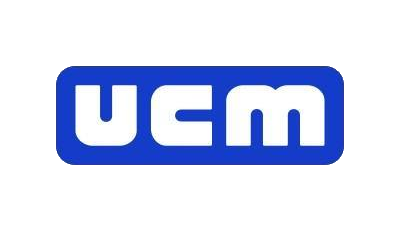Business mediation or judicial reorganisation procedure via amicable agreement? What’s the difference? Which is best suited to my situation? When should I use it?
Business mediation
WHAT IS BUSINESS MEDIATION?
This option provides the company with assistance from a specialist. They will prepare and facilitate the conclusion of a confidential agreement with creditors and/or advise and prepare for the bankruptcy proceedings best suited to the situation.
👉 Strategy assistance and trusted intermediary with creditors
WHAT IS THE PURPOSE OF business MEDIATION?
Implementation of a debt clearance and/or restructuring plan with the agreement of creditors which the court can endorse either confidentially or not.
👉 Participation and creditor buy-in of the process
👉 Avoid confrontation and maintain a dialogue with suppliers
what are the advantages of business mediation?
👉 Confidentiality (negotiation and agreement)
👉 Amicable, flexible method and duration
👉 Representative assigned by the court: trustworthy, independent and with authority
WHO CAN USE business MEDIATION?
Any enterprise (self-employed natural person, company, non-profit, foundation, association without a legal personality, etc.).
HOW TO USE business MEDIATION?
Via a request to the president to the Commercial Court (20 EUR + mediator cost) - no publication
WHEN SHOULD business MEDIATION BE USED?
When the company realises that it will not be able to honour its debt by the deadlines/when notification is received from the creditor/summons before the court for payment.
Judicial reorganisation procedure (via amicable agreement)
WHAT IS JUDICIAL REORGANISATION?
A judicial procedure that grants a period of time during which the company is protected from its creditors. This deferral will give the time needed to reorganise the business and negotiate with some (amicable agreement) or all creditors (collective agreement) about the way in which they will be paid and/or to transfer all or part of the business (by transfer).
👉 Option to request the appointment of a company mediator to assist with the negotiations with the creditors and the bankruptcy strategy.
what is the purpose of JUDICIAL REORGANISATION ?
To ensure the continuity of the business thanks to the deferral granted and find an agreement with certain creditors (min. 2 creditors).
what are the advantages of JUDICIAL REORGANISATION ?
Protection from creditors for a period of +/- 3 to 18 months to negotiate a repayment plan (no bankruptcy, seizure, expulsion, etc. for the debt existing on the day the deferral begins) with at least two creditors.
👉 The legal framework is reassuring for some creditors (e.g.: the ONSS, which grants longer debt clearance times).
👉 The option to obtain assistance from an independent mediator appointed by the court
who can ask for JUDICIAL REORGANISATION ?
Any enterprise (self-employed natural person, company, non-profit, foundation, association without a legal personality, etc.).
HOW TO APPLY FOR A JUDICIAL REORGANISATION?
Request to the Commercial Court (295 EUR + cost of the mediator) - submittal of the request is not confidential and the opening judgement is published in the Belgian Official Journal.
Summary table
|
|
Business mediation |
Judicial reorganisation |
|
How |
Request to the president of the Commercial Court |
Request to the Commercial Court |
|
Procedure |
Amicable, “out-of-court” |
Judicial, binding |
|
Publication |
Confidential |
The request and decision are published in the BOJ. |
|
Duration |
Open, generally 1 to 6 months |
Fixed: From +/- 3 to 6 months, renewable (12 months) or 18 months (exceptional) |
|
Protection/ creditors |
No |
Yes (deferral - no action by creditor) |
|
New debt possible after the procedure is initiated |
Yes |
No (in the event of new debt, any creditor can end the procedure and, therefore, the deferral) |
|
Costs |
Request (20 EUR) + mediator fees + potentially, lawyer fees |
Request (295 EUR) + (potentially) mediator fees + (potentially) lawyer fees |
|
When to submit |
When the “difficulties begin”, late payments, notices |
Short/medium-term risk that the business will be shut down (risk of seizure, expulsion, forced sale, bankruptcy summons) |
|
Advantages |
Confidential, less formal, generally faster and less expensive |
Deferral (all creditor actions are frozen) Judicial framework, which is reassuring and predictable for creditors |
|
Disadvantages |
No deferral |
Publication of the procedure: reticence on the part of suppliers (end of payment deadlines, termination of contracts), customers are worried, competitors lying in wait |
Note prepared by Maitre Lucille Bermond, lawyer with the Janson law firm
Who can help me ?



